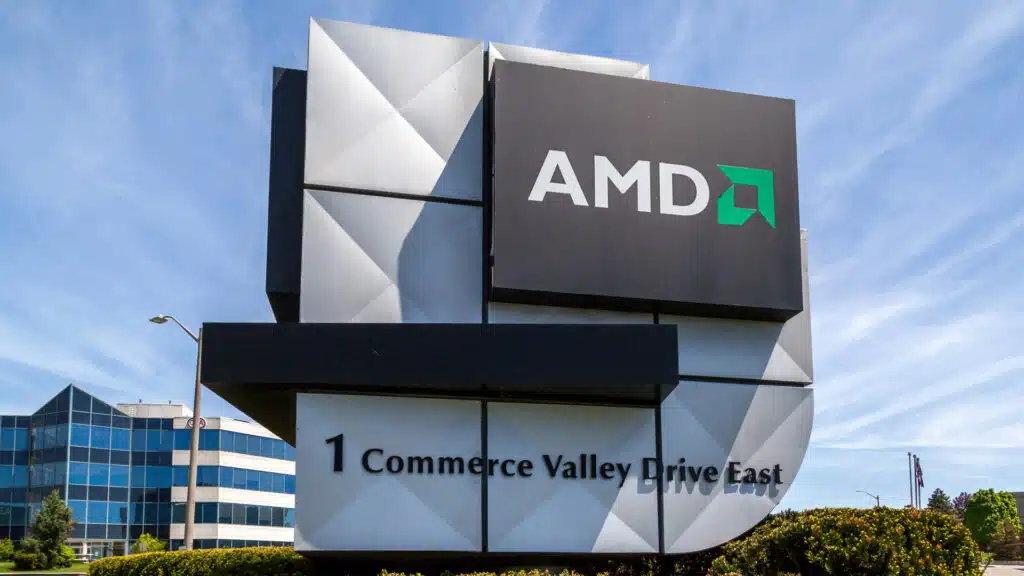On this episode of Futurum Live! From the Show Floor, Futurum Research Senior Analyst Steven Dickens talks with BMC Software’s Principal Product Manager, Paul Spicer, during the SHARE Conference in Atlanta. Their conversation covered the state of AIOps in mainframe environments and what BMC is bringing to the table.
It’s a great conversation you don’t want to miss.
Learn more at BMC Software.
You can view the video of their conversation here:
Or grab the audio on your streaming platform of choice here:
Disclaimer: The Futurum Tech Webcast is for information and entertainment purposes only. Over the course of this webcast, we may talk about companies that are publicly traded and we may even reference that fact and their equity share price, but please do not take anything that we say as a recommendation about what you should do with your investment dollars. We are not investment advisors and we do not ask that you treat us as such.
Transcript:
Steven Dickens: Hello and welcome to the Futurum Tech Webcast, brought to you this time in collaboration with BMC. I’m joined by Paul Spicer. Hey Paul, welcome to the show.
Paul Spicer: Thank you. Glad to be here.
Steven Dickens: So let’s do some introductions first. What do you do for BMC?
Paul Spicer: So I’m a product manager. I work as part of the ops organization, basically ops products for managing the mainframe.
Steven Dickens: Fantastic. So lots of focus on AI in the industry right now. Chat GPT seems to be on every tech headline that I see. What does the AI from an ops perspective mean for BMC, Paul?
Paul Spicer: It means a lot. I mean, as you say, it’s big in the industry, everyone’s talking about it, and we are investing a lot of money and building products in that space. We need to do it, our customers are demanding it. AI is just huge in terms of helping customers solve their problems, especially in the ops space. It’s all about making sure systems are running all the time, they’re running properly, and they’re always available. And if there is a problem, they can detect them quickly, diagnose them quickly. It’s all about making sure things are running properly, and you have to do that.
Steven Dickens: Especially in the mainframe space, I can imagine that more broadly across IT, but specifically in the mainframe space, these are mission-critical systems for their clients, often running the core crown jewels of their application estate. These have got to be available. Is that what’s driving it, you think?
Paul Spicer: Absolutely. Absolutely. And transactions are complicated these days. They’re often originating perhaps from a phone or from an ATM. There’s a lot of moving parts. The mainframe is the critical part, serving up the data, running the transactions. It has to always be available all the time. It just has to be there, and the performance has to be there.
Steven Dickens: So is that driving some of the behavior you’re seeing in clients?
Paul Spicer: Well, I mean there’s always been an urgency and a need for the mainframe to perform properly. That’s always been the case. It will always be the case. I think one of the things that’s changing is the workforce is changing. There’s less experienced people, the mainframe’s been run for a long time by the experts that know every in and out, where to look, how to solve problems. That’s changing. Some of those people are retiring, newer people are coming in, so there’s less experienced people. At the same time, transaction workloads are increasing, the complexity is increasing, especially with things like DevOps, application changes are being rolled out faster. There’s so much more going on in the mainframe environment. You need AI capability to keep up with managing it effectively.
Steven Dickens: So the skills piece, interesting that you mentioned that, I think that’s a key dynamic, especially in the mainframe. I know BMC puts an annual survey out and tracks that type of dynamic. Tell me a little bit more about that.
Paul Spicer: Yeah. First of all, you’re right, we’ve been running the survey for many years now and it’s a huge wealth of information that we’re able to get. And certainly the whole experience thing, for a long time we’ve been talking about older workforce started to move off the mainframe. But it’s real. The survey recently showed significant decrease in the people with 20 plus years experience and a significant increase in those with one to five. So obviously less experience in general in the environment. So you can’t just bring someone in, expect them to know the ins and outs of someone that’s been there forever. So the products have to fill in that gap. And that’s where AI comes into play. Well, AI and a combination of domain expertise built into the products just so that these newer people can do their job. They’re doing it in modern interfaces they like, intuitive, easy to use. And the capability with AI is just making their job easier, making the job possible, in fact.
Steven Dickens: So maybe let’s go one step further. How’s that actually manifesting itself in the BMC portfolio?
Paul Spicer: In a few ways. So one of the main product areas we’ve got is AMI Ops Insight, which leverages AI machine learning. And that’s all around helping detect problems quickly. Traditionally in the past, people write alarms and set thresholds. The experience needed to do that perhaps isn’t as there much as it used to be. But with AI machine learning, we can detect problems without people having to do that, and then take it the next step and identify the sort of cause and effect relationships behind the problem, and even take it down to another level and do a detailed analysis. And this is the sort of analysis that someone who is an expert would know I have to go here and do this, this, this, this. Having that all built into the product to actually come up and tell someone in detail, “Well, this is what the problem is,” so they all they have to do is go and take care of it. Yeah, I mean that’s probably one of the more obvious examples where we’re using it.
Steven Dickens: And where do you see that going forward? I mean, I think we’re at an inflection point with the adoption of AI in the industry right now. Maybe paint that picture two, three years out. How’s BMC thinking about that?
Paul Spicer: Well, from an adoption standpoint, it’s definitely growing. And again, going back to the survey, we’ve seen that in the survey. Year-on-year, we’re seeing more respondents are saying, “Yes, we’re using AIOps in the mainframe space.” So that’s absolutely happening. We obviously have to react to that, and how do we leverage it to get the best effect? Obviously that’s one product example I gave you. There’s other products where we could put that into play and just continue to take advantage of that incredible capability. It’s exciting. It’s so much going on.
Steven Dickens: So you mentioned one of the products there is you’ve seen AI pervasively deployed across all of your product set now. Is that where you see it’s going to go ultimately?
Paul Spicer: Well, we have several products where we’re using that kind of capability. Looking at capacity management, we’re using analytics and machine learning to predict capacity needs in the future. So that’s another example. But we use it where it makes sense and where there’s a use case that can support it, basically.
Steven Dickens: So if you were to summarize up, looking across the portfolio and where you are seeing, I think you’ve got a unique perspective on the marketplace. You’re probably chatting to more clients than certainly most in the mainframe ecosystem. If you were to summarize that up and give a key takeaway for people, what would you be saying? Maybe you’ve got an opportunity to engage with somebody and position BMC for the first time in this space. What would you be saying to them, Paul?
Paul Spicer: I think there’s some concern that it’s a lot of work installing all these things, and is it really going to give me the ROI? But we’re seeing from, again, the BMT survey that something like 70% of the respondents are saying, “Well, it speeds up time to problem detection.” Well, that’s a big deal and it’s a data point that we can point to and help customers [inaudible 00:06:54].
Steven Dickens: And that’s tangible for customers.
Paul Spicer: Yeah.
Steven Dickens: That problem resolution, we’re talking about these most mission-critical of system.
Paul Spicer: Absolutely. Absolutely. And that’s what it’s all about. I mean, downtime is… time of the application isn’t available. And-
Steven Dickens: And this isn’t Netflix. This isn’t… these are the mission-critical systems, so seconds matter here.
Paul Spicer: This is you trying to get money out the ATM and you can’t because the system’s down. I mean, no one wants that, right?
Steven Dickens: No. No. Those are the most critical of systems. So Paul, this has been fantastic. Really good to get an insight into where BMC is going in the AIOps space. I think a really robust portfolio, and I think it’s been fascinating. You’ve been watching us here on the Futurum Tech Webcast, brought to you in collaboration with BMC. Please click and subscribe, check back for new content and we’ll see you on the other side.
Author Information
Steven engages with the world’s largest technology brands to explore new operating models and how they drive innovation and competitive edge.












